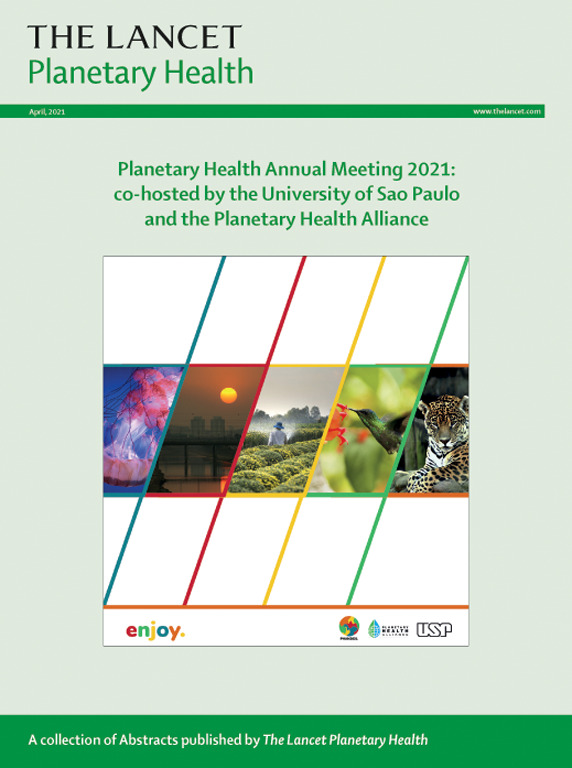确定传染病的气候敏感性:一个概念框架。
IF 21.6
1区 医学
Q1 ENVIRONMENTAL SCIENCES
引用次数: 0
摘要
传染病对公共卫生构成重大威胁,影响数十亿人,并使全世界的卫生保健系统不堪重负。人们越来越关注人为的气候变化可能如何加重对气候敏感的传染病的全球负担。在这个个人观点中,我们提出了一个框架来理解是什么使传染病对气候敏感。根据现有文献,我们确定了气候敏感疾病的三个关键特征——季节性、地理边界和与气候现象相关的年际变化。我们将气候敏感性定义为病原体、宿主和病媒特征(生物体影响其适应性的可测量特征)对气候变化的响应性,而不管这些变化是由自然变率还是人为气候强迫引起的。我们讨论了传染病如何表现出不同程度的气候敏感性(从高到低),并认识到传染病的分类可能随着新研究的出现而演变。我们回顾了来自生态学和模型研究的证据,这些证据表明气候变率和变化对病原体、媒介和宿主特征的非线性和延迟效应,强调了气候和非气候因素(如人口免疫、全球化和贫困)在确定疾病分布和驱动传播模式方面的重要性。我们强调,传染病传播风险与地球健康问题有着不可分割的联系。最后,我们讨论了如何利用这一认识,通过发展包括早期预警系统在内的卫生气候服务,加强传染病暴发的预防、准备和应对,从而改善气候变化适应战略和卫生系统的复原力。本文章由计算机程序翻译,如有差异,请以英文原文为准。
Identifying the climate sensitivity of infectious diseases: a conceptual framework
Infectious diseases pose a substantial threat to public health, affecting billions and straining health-care systems worldwide. There is growing concern over how anthropogenic climate change might aggravate the global burden of climate-sensitive infectious diseases. In this Personal View, we propose a framework for understanding what makes an infectious disease climate-sensitive. Drawing on existing literature, we identify three key characteristics of climate-sensitive diseases—seasonality, geographical boundaries, and interannual variation linked to climate phenomena. We define climate sensitivity as the responsiveness of pathogen, host, and disease vector traits (a measurable feature of an organism that affects its fitness) to changes in climate, regardless of whether these changes arise from natural variability or anthropogenic forcing of the climate. We discuss how infectious diseases show different degrees of climate sensitivity (from high to low), with the recognition that classifications of infectious diseases might evolve as new research emerges. We review evidence from ecological and modelling studies showing the non-linear and delayed effects of climate variability and change on pathogen, vector, and host traits, highlighting the importance of both climatic and non-climatic factors, such as population immunity, globalisation, and poverty, in identifying disease distribution and driving transmission patterns. We highlight that infectious disease transmission risk is inextricably linked to planetary health issues. Finally, we discuss how leveraging this understanding can enhance infectious disease outbreak prevention, preparedness, and response through the development of climate services for health, including early warning systems, thereby improving climate change adaptation strategies and health system resilience.
求助全文
通过发布文献求助,成功后即可免费获取论文全文。
去求助
来源期刊

Lancet Planetary Health
Multiple-
CiteScore
28.40
自引率
2.30%
发文量
272
审稿时长
8 weeks
期刊介绍:
The Lancet Planetary Health is a gold Open Access journal dedicated to investigating and addressing the multifaceted determinants of healthy human civilizations and their impact on natural systems. Positioned as a key player in sustainable development, the journal covers a broad, interdisciplinary scope, encompassing areas such as poverty, nutrition, gender equity, water and sanitation, energy, economic growth, industrialization, inequality, urbanization, human consumption and production, climate change, ocean health, land use, peace, and justice.
With a commitment to publishing high-quality research, comment, and correspondence, it aims to be the leading journal for sustainable development in the face of unprecedented dangers and threats.
 求助内容:
求助内容: 应助结果提醒方式:
应助结果提醒方式:


